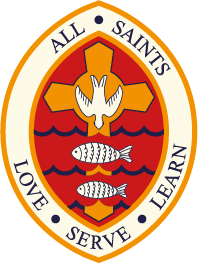Computer Science, iMedia and Enterprise
Faculty Leader: Mr U Butt
The Computer Science curriculum has been designed to provide students with the fundamental principles of Computer Science. Students are taught how digital systems work and how to put this knowledge to use through programming. Building on this knowledge and understanding, students are equipped to use information technology to create programs, systems and a range of content. Computer Science also ensures that students become digitally literate at a level suitable for the future workplace and as active participants in a digital world.
Key Stage 3
In Year 7 students build upon their Key Stage 2 ICT skills, developing their knowledge and understanding of the how to use computer systems safely and efficiently. Students will have the opportunity to develop basic skills in the most common pieces of software such as Word, Excel and Fireworks. Over the course of the year students will learn about: Digital Literacy, Computer Safety, Graphics Software and Spreadsheets.
In Year 8 students explore the different promotional methods used by enterprises and the factors that influence how enterprises identify and target their market. Over the course of the year students will learn about: Understanding Computers, Computational Thinking, Graphics and World Wide Web.
Year 9 students will further develop their computing skills, helping to prepare them for study at Key Stage 4. Over the course of the year students will learn to use Python to create a program. Students will also complete work on idea.org.uk, earning badges towards Bronze and Silver awards.
Key Stage 4
At Key Stage 4 students can choose to study either GCSE OCR Computer Science or OCR Cambridge National in Creative iMedia. Students also have the opportunity to choose to study the OCR Cambridge National in Enterprise and Marketing.
In OCR GCSE Computer Science students study the fundamental knowledge of computers, how they are programmed and essentially how they work. Students will learn how to create simple computer programs, gain an understanding of the fundamental concepts around creating software applications and have opportunities to work collaboratively. Students are encouraged to think creatively, innovatively, analytically, logically and critically while developing their understanding of the impacts of digital technology to the individual and to wider society.
The OCR Cambridge National in Creative iMedia gives students the opportunity to develop sector-specific knowledge and skills in a practical learning environment. This course complements the learning in GCSE qualifications, such as Design and Technology, Art and Design, and Computer Science, by broadening the application of ‘design and make’ tasks, working with a media brief and understanding and engaging different audiences through making compelling media products.
The Enterprise will teach students the knowledge and skills required to research, set up, run and review an enterprise. Students will develop their technical skills such as market research skills, planning, promotional and financial skills using realistic work scenarios, and personal skills, (such as monitoring own performance, time management and problem solving) through a practical and skills-based approach to learning and assessment.
What can I do with a Computer Science or iMedia qualification?
Computer Science is a subject which is included in the English Baccalaureate. This is the list of subjects which Sixth Form Colleges and universities prefer a student to have studied at least to GCSE level. The increasing importance of information technologies means there is a growing demand for professionals who are qualified in this area. Students who have taken a GCSE in computing and who then progress to study the subject at A Level or university will have an advantage over their colleagues, who are picking up the subject at these levels for the first time.
